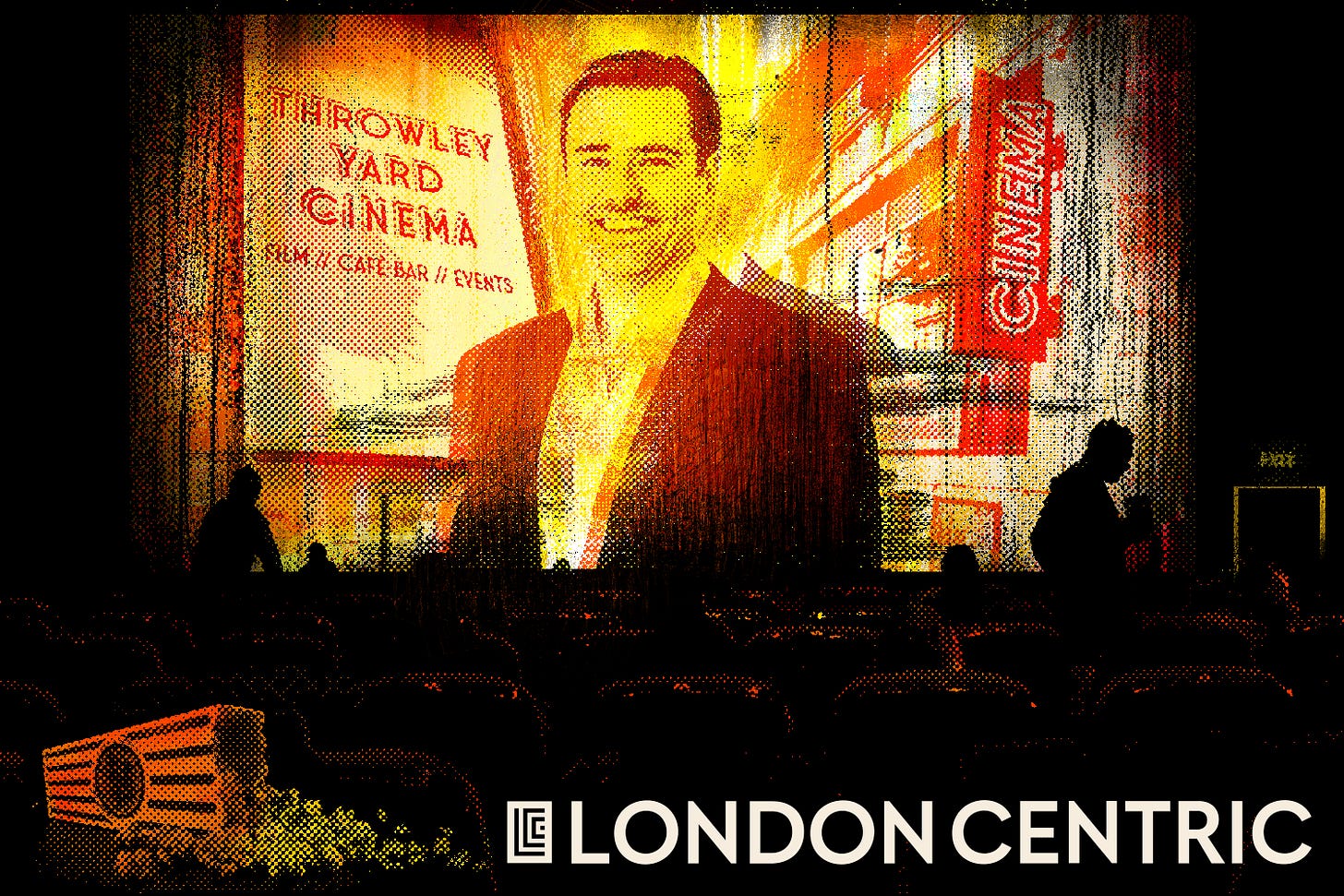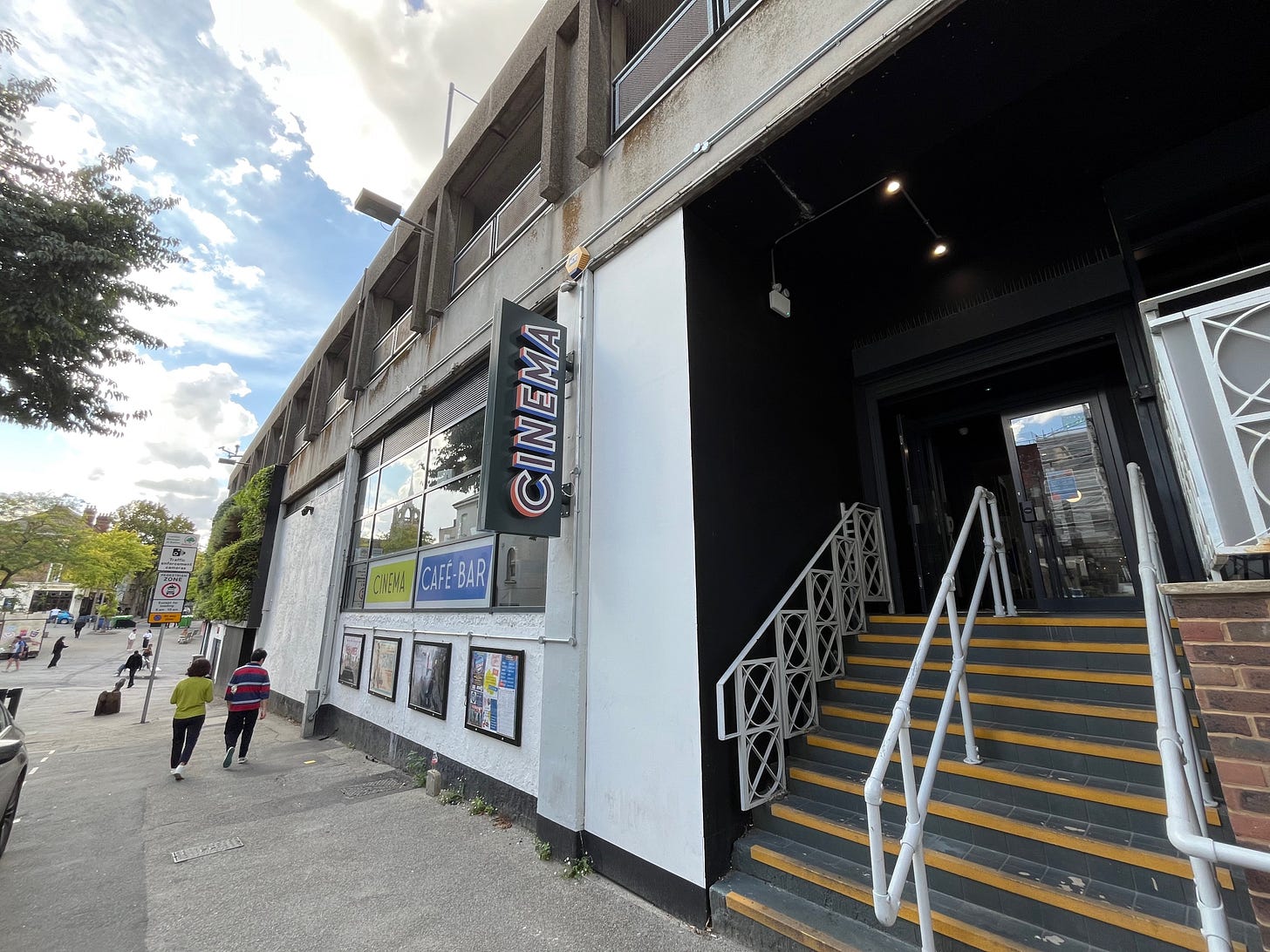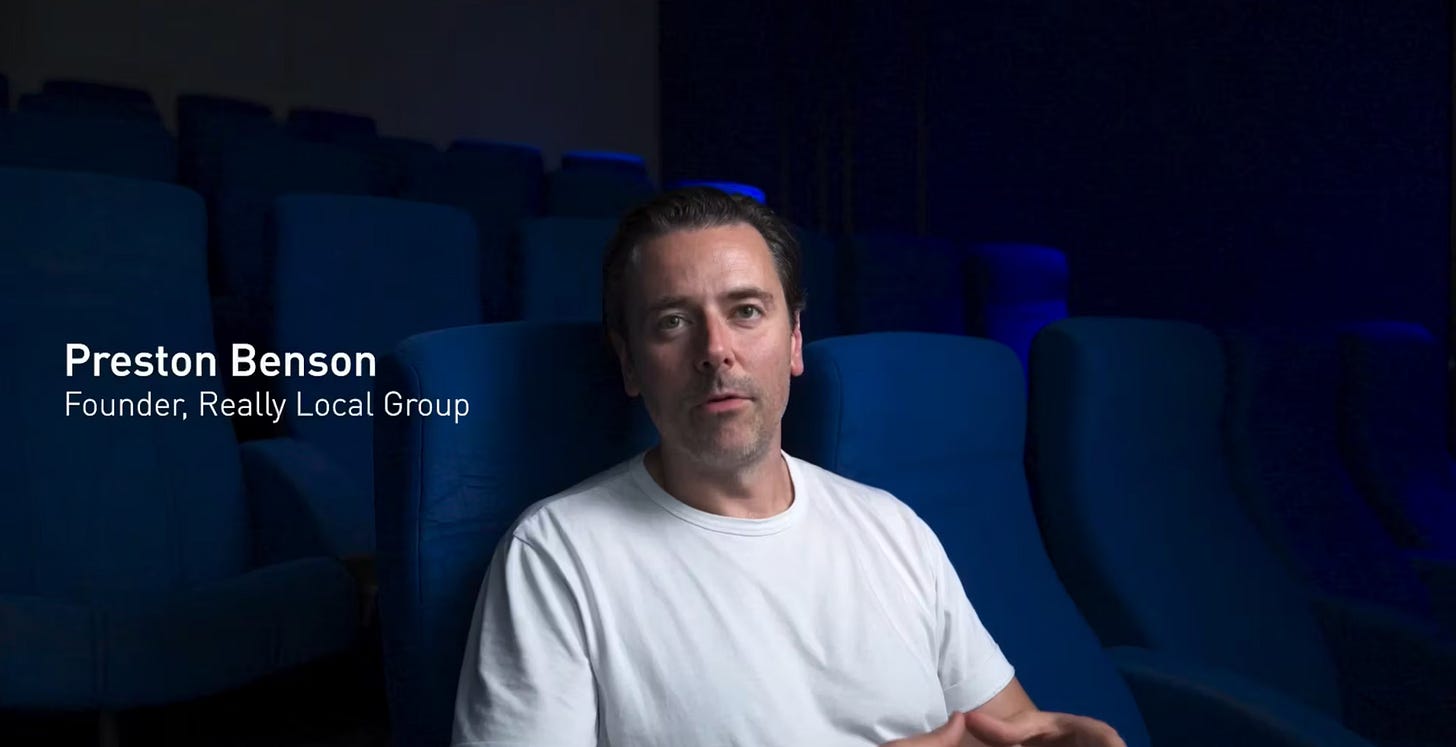The man who can't stop opening disastrous London cinemas
He received millions of pounds in public funds to help revive London's high streets with a chain of cinemas stretching from Ealing to Catford, and Sidcup to Sutton. What keeps going wrong?
In Preston Benson’s telling of his unusual rise to notoriety, he is a risk-taking American entrepreneur whose grand plan to revive London’s suburban high streets by opening cinemas in disused shopping arcades has been crushed by Covid, scheming local authorities, incompetent banks, and a film industry that prioritises streaming.
But there’s another view of the former Deloitte consultant, put forward by some of his former employees. In this version he’s a man so fixated on his longstanding dream of building a London entertainment chain that he’s willing to leave behind a trail of human destruction, collapsed companies, communities bereft of cultural spaces, and unpaid debts across the capital — while always finding others to blame for the mess.
“He reminded me of the guy from Fyre Festival,” said one person who worked closely with Benson. “I think he believed his own hype. I don’t think he was planning to scam anyone. I just don’t think he was planning at all.”
Across London lie a series of cinemas and arts businesses, from Catford Mews to Sidcup Storyteller, from the Ealing Project to Peckham Levels, formerly run by Benson’s Really Local Group. Many of them were supported by substantial public funds designed to regenerate the high street, or backed by members of the public through crowdfunders. All of them have either closed or had severe financial difficulties over the last two years, collapsing with millions of pounds in unpaid debts to HMRC, film distributors, local councils, employees and other small businesses.
When London Centric visited Benson’s one remaining cinema, Throwley Yard in south London’s Sutton, we found a largely empty but welcoming venue in a state of crisis. Sources said that rubbish had been left piling up in a store room because bin collectors hadn’t been paid, bailiffs had been visiting the site seeking repayment of debts, and wages had been months late. Staff were fearing for the future of their jobs and the closure of a venue that, against all odds, means a lot to the residents who use it.
The four-screen cinema, backed by £2m of high street revival funding from both central government and the local council, has only been open for a year. During this time it has been unable to show some of the country’s most popular films because distributors withheld new releases over unpaid debts. Last Christmas staff spent their time turning away families coming to see animated blockbuster Moana 2 because Disney hadn’t been paid. Instead they could offer disappointed children some niche arthouse films.
What former Really Local Group employees have spent the last year debating is whether Benson is delusional or wilfully reckless when it comes to his apparent addiction to opening venues across the capital. Increasingly, they don’t feel the distinction matters.
“You can believe the sky is the limit and believe you can make it work,” said Patrick Hart, a former duty manager at Really Local Group’s Ealing Project cinema, who says he is still chasing unpaid wages from his former employer.
“But ultimately if you don’t care about the effect on the people who work for you, then you’re both a dreamer and a bad person to those people. If you genuinely cared about the people who worked for you, you’d take responsibility for the state of the company.”
“Everything I was promised by Preston Benson didn’t happen”
In the late 2010s Benson had a vision of a form of urban regeneration that utilised unloved commercial units, initially focussed on London and the south east. What the former Deloitte employee was selling, the public and politicians were buying — and everyone London Centric spoke to went out of their way to mention that Benson was one of the best salespeople they’d ever encountered. Here was a man described in profiles as a “visionary”, who reckoned that he could revive local high streets and reintroduce moviegoing to suburbs that had often been without a cinema for decades.
Even better in the eyes of local councils operating without any money in an era of perma-austerity, Benson promised this could be done through his private sector for-profit business – often with a little bit of initial help from public funds. Millions of pounds of public money flowed towards his projects. The Guardian described Benson as the man “transforming defunct nightclubs, shopping malls and factories into thriving community centres”.
When Catford Mews, his first venue, opened a few months before the Covid pandemic, many residents were delighted. Situated within a rundown council-owned shopping arcade featuring a giant cat at the entrance, it was later used by Ed Sheeran as the filming location for his Bad Habits video. There was a substantial amount spent on the fit-out, pitched between a co-working space and an arthouse cinema.

Chris Douce, who ran a standup comedy night at Catford Mews, said the cinema’s opening was the best thing that had happened to the area in a long time. He said Preston took a punt on him, invested in good architects, and personally recommended comedy acts: “It was really good for my mental health, to go there and see an early screening. I miss the venue, I miss the people I met through comedy and it’s a personal loss that it’s closed.”
Yet there were signs even pre-Covid of a chaotic approach to business. One source said “everything was on WhatsApp”, with little going through a head office.
One of the food operators at the venue said: “Everything I was promised by Preston Benson didn’t happen,” they said. The site was a “wonderful place” but it never got the planned number of people through the door. What we were promised and what happened were two very different things. If there was 50% more footfall then Catford Mews would still be open.”
He said that when they quit the site it took seven months to get their deposit back: “It was £1,000 and to us it was a huge amount of money.”
“Total lie”
Almost everywhere you turn in Really Local Group’s world you find unpaid debts — and an excuse.
Benson’s charm and sales pitch is his calling card but the last year has taken its toll in terms of negative press coverage, prompting him to hire a hospitality PR agency to provide crisis communications support. When London Centric first approached them for comment on this article about his substantial debts, the agency informed us they were no longer working for Benson because they were themselves also owed thousands of pounds.
“I don’t need to tell you the grim reality of the hospitality scene at the moment but my suppliers and staff get paid before I do, to the detriment of myself,” said Katrina Kutchinsky, the co-founder of agency AKA Comms. She was genuinely shocked to encounter such behaviour: “You can’t behave differently in business.”
“I was brought in to help his public image,” she added. “So it’s a bit stupid to not pay your publicist.”
When we spoke directly to Benson he insisted he was in regular contact with Kutchinsky about repaying the money: “I’ve been working nonstop for almost a year to get investment into the business to get to a level where we can repay these historic debts. We’re doing our best and we are in contact with Katrina.”
Kutchinsky responded: “Total lie, he hasn’t been in touch for months and we remain unpaid.”
Want to get in touch with London Centric? Send an email or a WhatsApp.
Keep reading with a 7-day free trial
Subscribe to London Centric to keep reading this post and get 7 days of free access to the full post archives.







